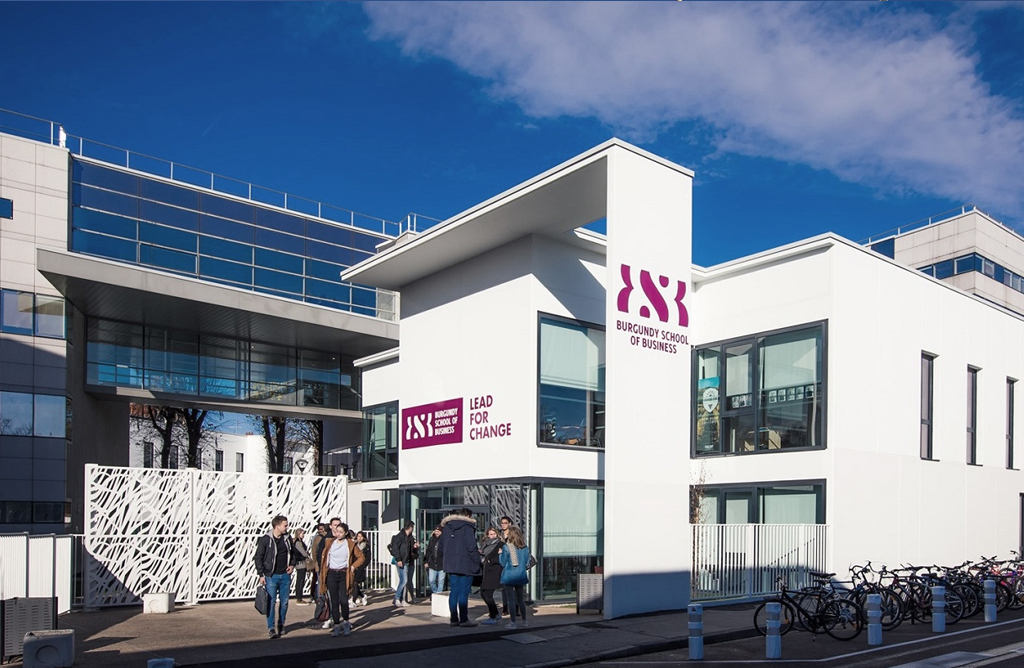Top 5 Reasons why your Education Loan may be Rejected

Studying overseas has grown in popularity among Indian students as globalization continues to change the nature of education. Studying abroad provides exposure to a variety of cultures, top-notch educational facilities, and improved career opportunities. Finding money for study abroad loans is one of the major obstacles that students must overcome in order to pursue this goal, though. Even with the availability of these financial products, many Indian students apply to banks for study abroad loans and are turned down. The top five reasons why banks might deny loan applications from Indian students hoping to pursue international education are examined in this essay.
1. Inadequate Collateral or Guarantor
Banks usually require collateral or a guarantor as a form of security when a borrower applies for a loan in order to guarantee repayment. The term "collateral" describes the assets that the borrower pledges as security for the loan, such as real estate, investments, or priceless items. In contrast, a guarantor is a person who promises to pay back the loan in the event that the borrower defaults.
When it comes to study abroad loans, some frequent grounds for denial because there isn't enough collateral or guarantor include:
- Inadequate or Absent Collateral: To cover the loan amount, banks may demand collateral with a specific value. The loan application may be denied if the applicant provides collateral that is too little or does not meet the requirements set forth by the bank.
- Financial Status of the Guarantor: The creditworthiness and stability of the guarantor are very important. The bank has the right to reject the application if the guarantor has any outstanding debts or liabilities, or if their credit history or financial standing does not match their requirements.
- Mismatch between Loan Amount and Collateral Value: When a student requests a larger loan than the offered collateral value, the bank may be reluctant to grant the loan.
- Unverifiable or Unacceptable Collateral: Some assets may not be able to be verified, may be too complex legally, or may not be marketable enough to be accepted as collateral by the bank.
- Credit History of the Guarantor or Applicant: A bad credit history suggests a higher default risk, which may result in rejection for both the guarantor and the applicant.

2. Poor Credit History or Lack of Creditworthiness
Indian students' study abroad loan applications may be denied by banks for a number of reasons, including poor credit history or lack of creditworthiness. When evaluating a loan application, banks take into account a number of important factors, including creditworthiness and credit history. These variables may affect the approval process in the following ways:
- Credit History: Your chances of getting a loan approved may be severely impacted by a bad credit history, which includes missed payments, defaults on past loans, outstanding debts, or a bankruptcy history. Banks assess an applicant's credit history using credit reports obtained from credit bureaus.
- Lack of Creditworthiness: Banks may view certain students as having a lack of creditworthiness if they haven't yet established a credit history, either because they are new to borrowing or because they don't have any credit accounts. It could be difficult for banks to evaluate a student's ability to repay debt in the absence of a credit history.
- High Debt-to-Income Ratio: In the absence of a bad credit history, a borrower's high debt-to-income ratio—the difference between their gross income and their debt payments—may cause banks to be reluctant to approve further credit.
- Defaulted Loans or Unpaid Dues: If a student is applying for a study abroad loan and has a history of defaulted loans or unpaid dues, even if it is unrelated to them, it may have a negative effect on their loan application, particularly if they are guarantors for another person's loan.
3. Insufficient Documentation or Misrepresentation of Facts
Banks frequently reject Indian students' applications for study abroad loans due to inadequate documentation or factual misrepresentation.
Banks demand certain paperwork when a borrower applies for a loan in order to confirm the borrower's identity, financial situation, loan purpose, and—if necessary—collateral. The loan application may be rejected due to incomplete or inaccurate documentation. Here are some important things to think about:
- Incomplete Documentation: Banks maintain a list of necessary paperwork that loan applicants must provide with their application. Rejection may occur from sending paperwork that is incomplete or lacking any of these documents. This could include documentation of one's address, income, identity, or acceptance to a school, among other things.
- Inaccurate Information or Misrepresentation: If you purposefully or inadvertently give false or inaccurate information on your loan application, it may be rejected. This includes fabricating collateral information, misrepresenting the purpose of the loan, lying about academic credentials, and inflating income figures.
- Non-Compliance with Bank Requirements: Before granting study abroad loans, a bank may have its own set of particular requirements or criteria. Should the application not fulfill these requirements or not adhere to the bank's policies, it could lead to rejection.

4. Unfeasible Loan Amount or Unrealistic Repayment Plans
Unrealistic repayment schedules or unaffordable loan amounts are undoubtedly good reasons for banks to deny Indian students' applications for study abroad loans.
Banks assess loan applications to make sure that the loan amount requested is appropriate given the borrower's overall financial situation and ability to repay the loan. The following factors could result in loan rejection if the repayment schedule or loan amount are not realistic:
- Excessive Loan Amount: A student may be rejected if the requested loan amount is much more than the bank believes they can afford to repay given their current financial status, expected income after graduation, or the perceived value of the chosen course.
- Inadequate Repayment Capacity: Banks determine a borrower's repayment capacity by looking at their potential for future income following graduation. Rejection may result if the borrower's expected income is judged insufficient to repay the loan, particularly in light of the amount borrowed.
- Unrealistic Repayment Plans: If the borrower submits repayment plans that are not workable or reasonable—for example, by recommending extremely low monthly payments over an extended period of time that aren't consistent with the loan terms—the bank may reject the application.
- Absence of Collateral or Strong Guarantor for Large Loans: Banks may demand sufficient collateral or a reliable guarantor for loans exceeding a certain amount. Rejection may result if this kind of security isn't offered and the loan amount is large.
5. Insufficient Academic Progress or Plenty of Backlogs
Applications for study abroad loans are frequently examined by banks, and one important factor they consider is the applicant's academic standing. A poor academic record, characterized by low grades or a history of multiple backlogs, may raise questions about the applicant's dedication to and capacity for success in the selected study abroad program.
In order to increase the chances of loan approval, students must make academic performance a top priority and continue to perform admirably throughout their course of study. Consistently putting in a lot of effort in their studies not only shows that the applicant is dedicated to achieving academic success, but it also strengthens the impression that their investment will probably pay off. As a result, students hoping to obtain loans for study abroad should concentrate on developing and maintaining a strong academic record in order to allay any worries that financial institutions may have expressed when assessing loan applications.
In summary, Indian students seeking to study abroad must successfully navigate a number of financial requirements and demanding application procedures in order to obtain a study abroad loan. A number of reasons can lead to a bank rejecting your loan application: you may have inadequate documentation, bad credit, insufficient collateral or guarantors, unrealistic loan amounts or repayment schedules, or you may be trying to get money for courses or institutions that aren't officially recognized. Before applying for a study abroad loan, students should make sure that all of their documentation is correct, keep up a clean credit record, look into other financing options, and carefully consider their chosen educational path and its financial implications. Furthermore, consulting with loan counselors or financial advisors can greatly increase the likelihood that a loan application will be approved.

What should you do to Expedite your Loan Application Process?
It can take a lot of time to navigate the complex world of bank loan processing for schooling, which emphasizes the significance of students making advance plans.
1. Start Early
It is strongly advised that students get in touch with banks as soon as possible when they decide to pursue an international education, providing their supporting documentation as soon as they begin the application process for foreign colleges.
2. Don’t wait for Admission Letters to Engage with your Bank
One common misconception that is frequently seen in students is the inclination to wait to start the loan application process until after they have received acceptance letters from potential universities. But this hold-up could be a serious mistake. Banks usually need a significant amount of time to thoroughly examine and process loan applications, taking into account a number of variables like financial records, credit history, and collateral appraisal. Before you receive your admissions letter, finish these steps.
3. Be Proactive
Students can potentially expedite the overall timeline and reduce the likelihood of last-minute challenges by proactively starting the loan application process prior to receiving admission letters. After obtaining the check-list from the bank, begin the process of getting the paperwork ready. Discuss the entire loan amount that you are eligible for, the collateral, and the repayment schedule with the bank. Ask the bank how long it takes to process loans as well.
4. Enquire with More than one Bank
Don't rely solely on the bank where your account is located. Find out the loan interest rates, documentation requirements, and processing time by contacting different banks. To save time, make a shortlist of your bank and ensure that everything is ready before your admittance time.
5. After Receiving Admission Letter
If you followed the above procedure, you would already have all the paperwork you need to submit to the bank—with the exception of the acceptance letter. Submit your admission letter to the bank as soon as you receive it, and then actively follow up with them to expedite the processing of your loan application.
6. Pay 1st Instalment Fee through your Available Funds
It is advised to pay the first installment fee to the university using your available funds in order to avoid losing the admission offer, as many universities have deadlines for paying the first semester fee to secure your spot. Later, you can receive the money back through your education loan.
With the help of this calculated approach, loan applications can be processed more quickly and easily, giving students the financial assurance and support they require well in advance of their intended enrollment in international schools.
Essentially, starting the loan application process early is in line with best practices, allowing students to easily handle the complexities of bank processes and guaranteeing that financial concerns are taken into account at every stage entire study abroad planning phase.









































































